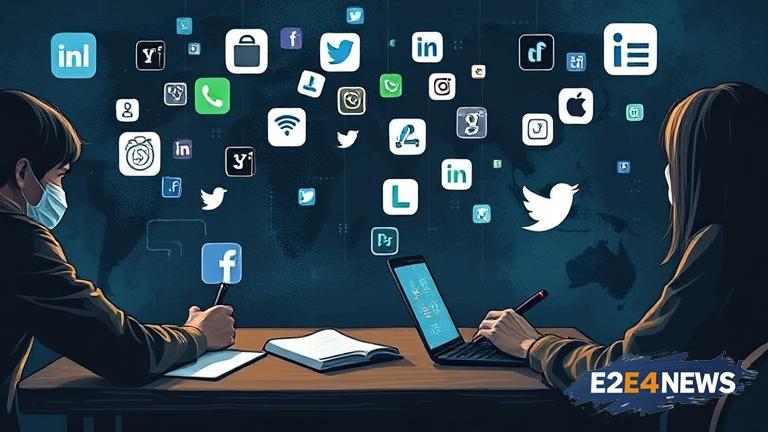Social media has become an integral part of modern life, with billions of people around the world using online platforms to connect, share, and learn. However, the increasing presence of social media in the education sector has raised concerns about its impact on national exams. In recent years, there have been numerous reports of students using social media to cheat, share exam questions, and collaborate on answers. This has led to a growing concern about the integrity of national exams and the potential consequences for students, teachers, and the education system as a whole. One of the main ways social media is undermining national exams is through the sharing of exam questions and answers. Students are using social media platforms to share photos of exam questions, ask for help, and collaborate on answers. This not only compromises the integrity of the exam but also creates an unfair advantage for students who have access to these resources. Another way social media is impacting national exams is through distractions. Students are often tempted to check their social media accounts during exams, which can lead to a loss of focus and a decrease in performance. Furthermore, social media can also be a source of stress and anxiety for students, which can negatively impact their performance on exams. In addition to these concerns, social media has also been linked to security breaches and exam leaks. In some cases, exam questions and answers have been leaked on social media before the exam, giving some students an unfair advantage. This has led to calls for greater security measures to be put in place to protect the integrity of national exams. To address these concerns, educators and policymakers are exploring ways to minimize the impact of social media on national exams. This includes implementing strict social media policies, providing students with training on how to use social media responsibly, and using technology to monitor and prevent cheating. Some schools are also exploring the use of social media-free zones during exams, where students are not allowed to use their devices. While these measures may help to mitigate the negative impacts of social media on national exams, they also raise concerns about the potential consequences for students who are not able to access these resources. For example, students who do not have access to social media may be at a disadvantage compared to their peers who do have access. Moreover, the use of social media-free zones during exams may not be effective in preventing cheating, as students may still find ways to access their devices. Despite these challenges, it is clear that social media is having a significant impact on national exams, and educators and policymakers must take steps to address these concerns. This includes providing students with the skills and knowledge they need to use social media responsibly, as well as implementing measures to prevent cheating and ensure the integrity of exams. By working together, we can ensure that national exams remain a fair and accurate measure of student knowledge and skills. The impact of social media on national exams is a complex issue that requires a comprehensive approach. It is not just a matter of implementing strict social media policies or using technology to monitor and prevent cheating. Rather, it requires a fundamental shift in the way we think about social media and its role in the education sector. We need to recognize that social media is not just a tool for communication and collaboration, but also a potential source of distraction, stress, and anxiety. By acknowledging these risks and taking steps to mitigate them, we can ensure that social media is used in a way that supports student learning and success. In conclusion, the impact of social media on national exams is a growing concern that requires immediate attention. While social media has the potential to support student learning and success, it also poses significant risks to the integrity of exams. By providing students with the skills and knowledge they need to use social media responsibly, implementing measures to prevent cheating, and promoting a culture of academic integrity, we can ensure that national exams remain a fair and accurate measure of student knowledge and skills.





